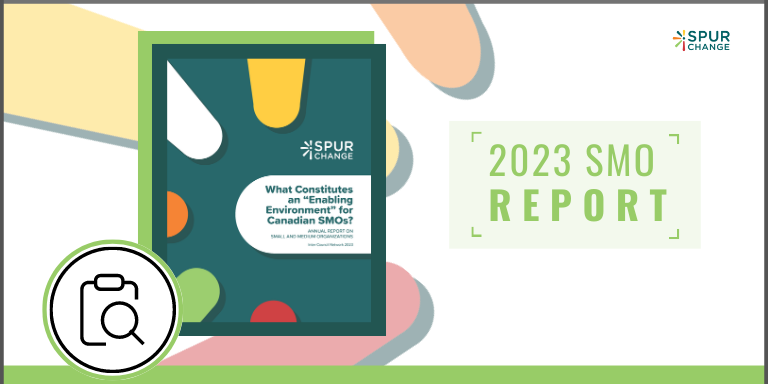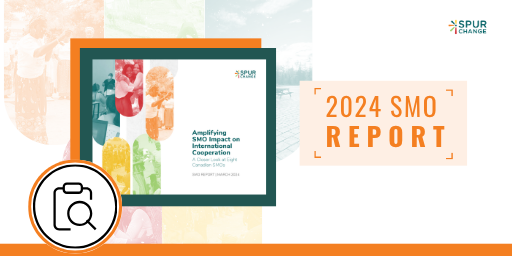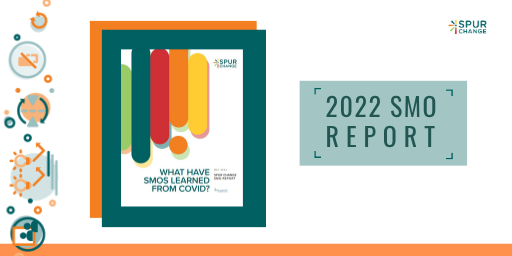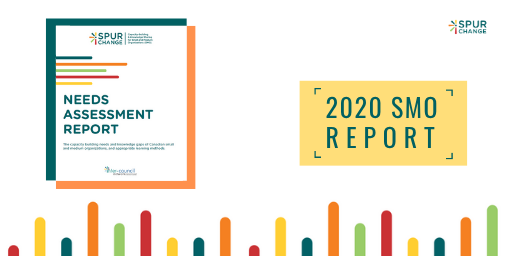
Small and medium-sized organizations (SMOs) have long played a critical role within Canada’s international cooperation landscape. The ability of SMOs to emerge and thrive in many ways is contingent upon the environment within which they are established. An environment with favorable policies and where opportunities for funding, public engagement, networking, and collaboration abound is fertile ground for a vibrant civil society, including strong and well supported SMOs. But what does this look like in practice? Is the current Canadian environment an enabling one?
To answer these questions, the research team launched a survey in October/November 2022 and then completed 17 semi-structured interviews with representatives from SMOs, provincial and regional
councils for international cooperation, NGO network organizations, and a donor agency. The information gathered through the survey and interviews has been used here to describe and analyze the environment within which SMOs are operating in Canada while drawing comparison to the environments in other countries.
This report is meant to serve as a learning tool for all Canadian international cooperation actors. In analyzing both the challenges and benefits associated with Canada’s enabling environment, it identifies ways to strengthen and facilitate the crucial international cooperation work carried out by Canadian SMOs.
This year’s SMO Report was released on May 26, 2023. A webinar launch going over key findings with the research team and participants was held on June 19, 2023 12 pm ET (9 am PT). Find the recording below.
About the webinar speakers
Andrea Paras | Research Team
Andrea Paras is the Interim Director of the Guelph Institute of Development Studies and an Associate Professor in the Department of Political Science at the University of Guelph. She has conducted research on the history and politics of humanitarianism, including Moral Obligations and Sovereignty in International Relations: A Genealogy of Humanitarianism (Routledge, 2019). Her current SSHRC-funded research investigates the impact of the COVID-19 pandemic on Canada’s foreign aid sector, with a specific focus on how Small and Medium NGOs have adapted to the pandemic. Dr. Paras teaches and supervises in the area of international development, international relations, human rights, religion and politics, community-engaged research, and intercultural competence.
Heather Dicks | Research Team
Heather Dicks is a PhD candidate within the Sociology Department at the Memorial University of Newfoundland and Labrador; her present research is centered on the nexus between International Development and Migration. Prior to starting her PhD, Heather spent over a decade working in the field of International Development. This included work with the Canadian government, the United Nations, and several non-governmental organizations. Heather is currently working with the University of Guelph as a Research Assistant on a SSHRC-funded research project exploring the impacts of COVID-19 on Small and Medium-sized Organizations working in Canada’s foreign aid sector.
Denis Côté | Panelist
Denis Côté has been working has a policy analyst at the Association québécoise des organismes de coopération internationale (AQOCI) since 2015, where he focuses on issues such as climate change, women’s rights and gender equality, corporate accountability and human rights among others. He is also co-owner of a small vegetable farm, a translator and a board member of the Canadian Association for the Study of International Development (CASID).
Ian Pringle | Panelist
Ian Pringle is a communication specialist with over thirty years professional experience in organisational leadership, program development and delivery. He holds a MA in New Media in Society from the University of Leicester and a BA from McGill University. Ian has broad international experience including South and Southeast Asia, sub-Saharan Africa, the Caribbean and the Pacific. He has worked for UNESCO, the Commonwealth of Learning and a variety of radio stations and cultural organisations. He has been the Director of Programs at Farm Radio International since January 2015.
Jen Rubli | Panelist
Jen Rubli is a monitoring, evaluation, and learning expert with ten years experience in gender and menstrual/sexual/reproductive health programming and research in LMICs. She works as the Research/MEL Director for Femme International, a co-investigator on the PASS-MHW research project, and an MEL consultant for Crossroads with NAFGEM Tanzania. She is leader of the Research/MEL task force for the Africa Coalition for Menstrual Health, and has contributed to the development of theoretical models, tools, and indicators for measuring menstrual health. She’s passionate about data, improving access to MEL, and cats.
Rachel Levee | Chair
Rachel is the interim Director for the Spur Change Program. Prior to joining the team, she was the acting Executive Director of Pacific Peoples’ Partnership, a Canadian NGO dedicated to supporting the work of Pacific Islanders through community-led initiatives, where she was formerly Vice-President of the Board. She also volunteered as a Community Advisor to the South Vancouver Island (SOVI) chapter of the British Columbia Council for International Cooperation (BCCIC), of which she was a former co-chair. She also recently had the privilege of spending the majority of my time with her young child, and prior to her extended parental leave, she was the National Coordinator for the ICN (Inter-Council Network). She has worked and volunteered in various capacities with partners both locally and internationally, largely focusing on community building, knowledge sharing, and good practices in nonprofit governance. She holds a Master’s degree in African history from the University of Toronto.




